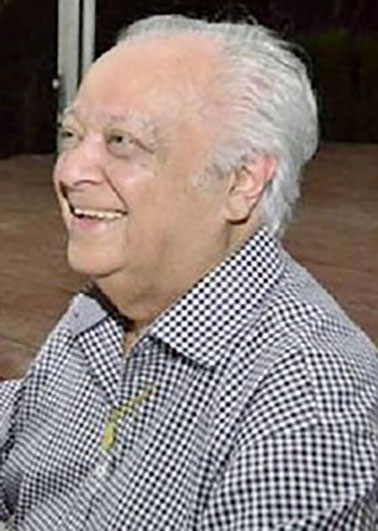The Ministry of Foreign Affairs and International Cooperation has joined with others in paying tribute to Sir Shridath Ramphal who passed away on August 30.
In a release, it acknowledged Sir Shridath as a distinguished son of Guyana, a committed Caribbean man, a regional integrationist and icon, and a respected international statesman, who also served as Guyana’s first Minister of State in the Ministry of External Affairs and Minister of Foreign Affairs during the formative years of the nation.
It noted that Sir Shridath was instrumental in establishing the foundations and general architecture of Guyana’s diplomacy and foreign policy and his tenure as Foreign Minister was marked by notable accomplishments for Guyana’s diplomacy.
The first meeting of Foreign Ministers of the Non-Aligned Movement in the Western Hemisphere was held in Georgetown in 1972. Guyana and three other countries – Barbados, Jamaica and Trinidad and Tobago – established diplomatic relations with Cuba in 1972. Guyana became the first country from the English-speaking Caribbean to serve on the United Nations Security Council (1975-1976) and the African, Caribbean and Pacific Group of States was founded via the Georgetown Agreement in 1975.
Sir Shridath was an avowed regionalist, who understood the need to bring the nations of CARICOM closer together and to build bridges with the wider Caribbean, the ministry said. He was a key architect of the process of regional integration that culminated in the founding of the Caribbean Community (CARICOM) in 1973, which, fifty-one years later, stands as the oldest integration movement in the developing world.
Sir Shridath subsequently headed the celebrated West Indian Commission which, in 1992, produced a seminal report “A Time for Action”. Among the many outcomes of that important process of reflection was the emergence of the Association of Caribbean States (ACS) in 1994, which, just this year, celebrated 30 years of existence. The ACS links CARICOM with important partners in South and Central America and the wider Caribbean.
The release also emphasised that Sir Shridath’s contributions were not limited to the national and regional domains. He became the longest serving Secretary-General of the Commonwealth, holding the reins of that organisation from 1975 to 1990. In the exercise of that office, he played a pivotal role in mobilising the Commonwealth and the world against the injustices of apartheid and institutional racism in Southern Africa and was witness to the liberation of Zimbabwe from white minority rule and the eventual end of the apartheid system in South Africa.
As such, it came as no surprise that his diplomatic and intellectual stature led to calls to serve the wider international community in many fields, roles which he executed always with singular distinction and an abiding sense of purpose. The ministry noted that he served on numerous international commissions including the Brandt Commission on Development, Palme Commission on Disarmament, World Commission on Environment and Development, Independent Commission on International Humanitarian Issues, the South Commission on the major problems facing Third World countries, and the Commission on Global Governance. He also served as Chancellor of the University of Guyana, the University of the West Indies and the University of Warwick.
Notwithstanding his many and wide-ranging engagements, the ministry said that Sir Shridath still found time to contribute in multifaceted ways to Guyana’s evolution. At the time of his passing, he was one of Guyana’s Co-Agents in the case before the International Court of Justice concerning the Arbitral Award of 3 October 1899 (Guyana v. Venezuela), having been the last surviving witness to the signing of the 1966 Geneva Agreement concerning the frontier between British Guiana and Venezuela.
Sir Shridath has left a “monumental legacy of service, distinguished by excellence and commitment to the cause of human justice and to the progress of all peoples”, the statement added. Among the many testaments of his rich legacy is “Ramphal House” which forms an integral part of the Ministry’s complex and the conferment of the nation’s highest honour, the Order of Excellence.










